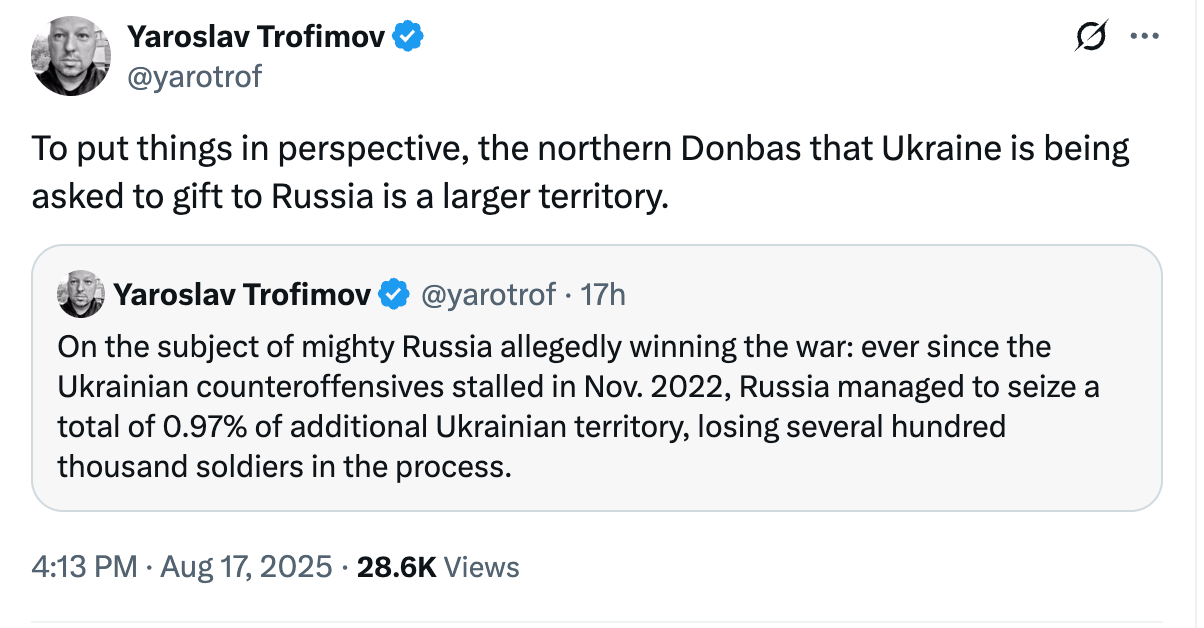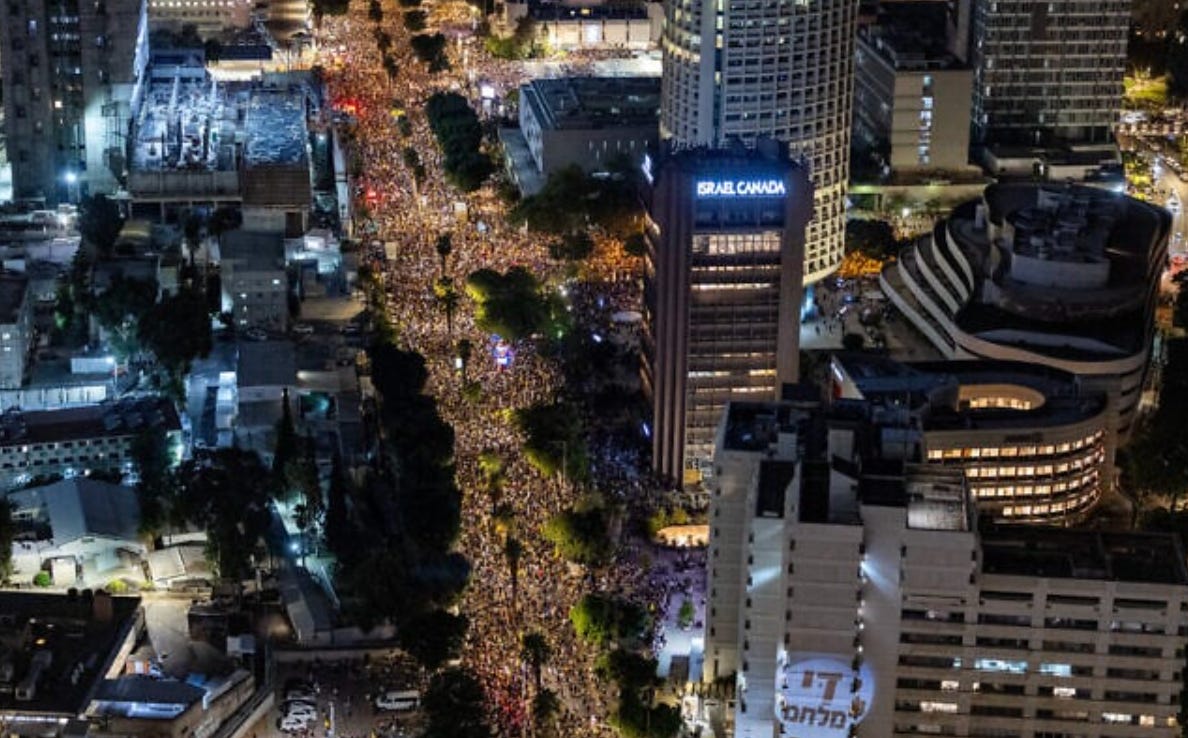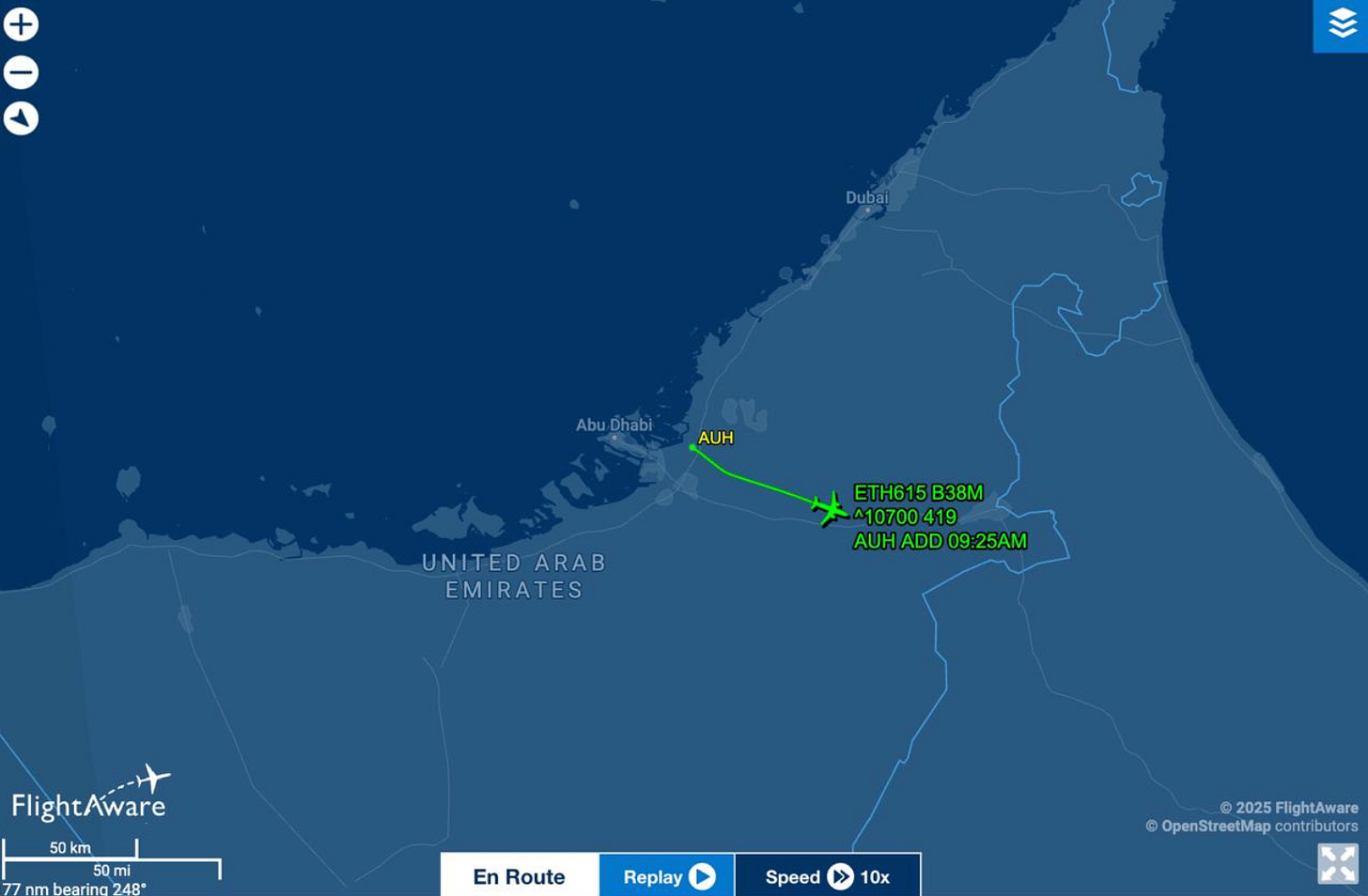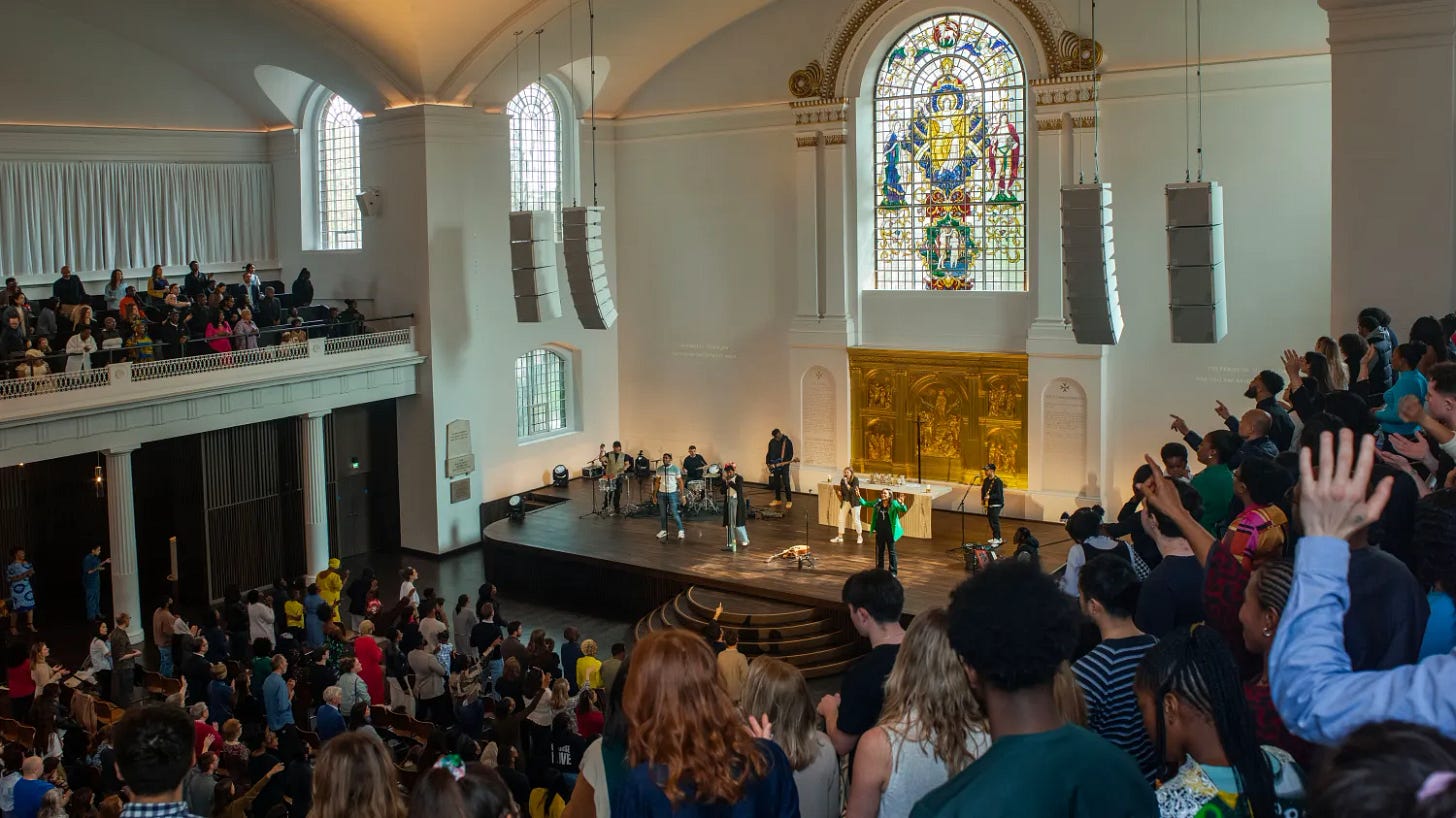Over the past four presidencies, the United States has acquired a checkered history when it comes to bringing wars to a close. That’s maybe one reason Ukrainian President Volodymyr Zelensky brings with him an outsized delegation of European heads of state as he meets President Donald Trump at the White House today.
The leaders of Germany, France, the UK, and Finland, along with European Commission and NATO heads, will travel also to Washington for the Oval Office meeting—part of an unprecedented but coordinated effort to show Europe’s support for Ukraine. They provide backup after the shellacking Zelensky endured six months ago in his first Oval Office meetup with Trump, plus diplomatic structure after Friday’s unbounded summit between Trump and Russian President Vladimir Putin.
In short, what the U.S. wants is a deal that ends the war. Zelensky and Europe want a ceasefire that would allow negotiations to end Russia’s three-year invasion while preserving Ukraine’s independence. A deal could include security guarantees to Putin that NATO will not encroach on Russia (already Trump has said Ukraine will not join NATO) while pushing back against Putin’s quest for territory inside Ukraine with security guarantees for Zelensky. Putin wants territory inside Ukraine, and to so degrade Zelensky he can install a puppet government in Ukraine, ensuring its allegiance.
Putin at Friday’s Alaska meeting proposed that Ukraine hand over Donbas, the eastern region of Ukraine Russia has fought to control since 2014. As reporter Yaroslav Trofimov points out, Putin is asking for a region much larger than what he’s been able to take in three years of fighting at a cost of several hundred thousand soldiers. So, far from holding a winning hand, Putin is asking Western powers to cede outright what he’s been unable to win on the battlefield.
Read Trofimov’s complete analysis here.
Trump added pressure to Zelensky overnight with a Truth Social post saying that Zelensky “can end the war with Russia almost immediately, if he wants to, or he can continue to fight.” Putin, for his part, will take advantage of the elevated stature last week’s summit afforded him, whatever happens today. A drone attack in Kharkiv killed 10 Ukrainians overnight, and Russian tanks in Ukraine appear to be sporting American flags.
For Gaza, two former U.S. diplomats in the region offer an accounting of what’s happened and what must be done to prevent humanitarian catastrophe that’s worth your time.
Israelis’ frustration, after 22 months of war that have upended their country while Israelis yet remain hostages of Hamas, boiled over into the largest and fiercest protests involving an estimated 1 million people.
I’m with Thomas Friedman on this one, the importance of staying after Ukraine and Israel at war:
It’s not an accident. I believe that if Ukraine were to fall to Vladimir Putin and Israel were to become a phony democracy like Hungary, the whole world would tip the wrong way.
Israel is the only real democracy with an independent judiciary in the Middle East. Ukraine is defending the European Union, a giant engine of the rule of law, free markets, human rights and democratic norms, even if not every E.U. country has fully embraced all of them. If democracy is undermined in the E.U. and Israel, democracy everywhere will be more endangered.
Those remaining Afghans in detention in Abu Dhabi? Last week they were flown to Rwanda, where a growing community of Afghans deprived of status in the West is taking root in the capital, Kigali. The arrangement required U.S. State Department okay, but their departure out of the Gulf facility—where they were threatened last month with repatriation to Afghanistan by Taliban officials—was funded by a private U.S. nonprofit.
Two oil cargoes from Venezuela are headed to the United States after the U.S. Treasury last month granted a new license to Chevron to pump oil following years of sanctions against the socialist dictatorship. The move is a reversal of previous Trump policy. It came after negotiations led by Secretary of State Marco Rubio—long an outspoken foe of the Maduro regime—secured the release of 10 Americans detained by the Venezuelan government.
In the UK, The Times carried a two-page spread yesterday on what some commentators are calling the “Gen Z Christian revival” across England and other parts of Europe. The Catholic diocese of Westminster in London welcomed 500 adult converts last Easter and the Catholic Church in France baptized almost 18,000 adults and adolescents, a record and a growing phenomenon, as—
the traditional consolations of a well-lived secular life are weakening. Romance, friendship, family and materialism figure less prominently as sources of meaning in the lives of a generation that is poorer, lonelier, less sexually active, less sociable and less likely to start a family. And in the age of the smartphone, inane short-form videos and social media doom-scrolling are undoubtedly addictively entertaining but not very profound or spiritually nourishing.
Missionary David Lin spent 17 years behind bars in China for his work supporting underground churches. Released last September, the 70-year old Taiwanese-American spoke to Christianity Today with his wife Cathy in his first interview about the experience, which included living in a 25-by-15-foot cell with a dozen men.
“But when I go there, I see the opportunity,” David said. “I forget what my pain is. I see the other people don’t know the Lord. So I just keep preaching for all the men.”
Homefront: Thank you for some great fiction suggestions and conversation from the last GlobeTrot, posted in the comments and by email (direct responses to your GlobeTrot emails go only to me, fyi). I learn from you.





Excellent reporting. Stuff you don't see in the other outlets. Thanks!
GOOD COMMENTS